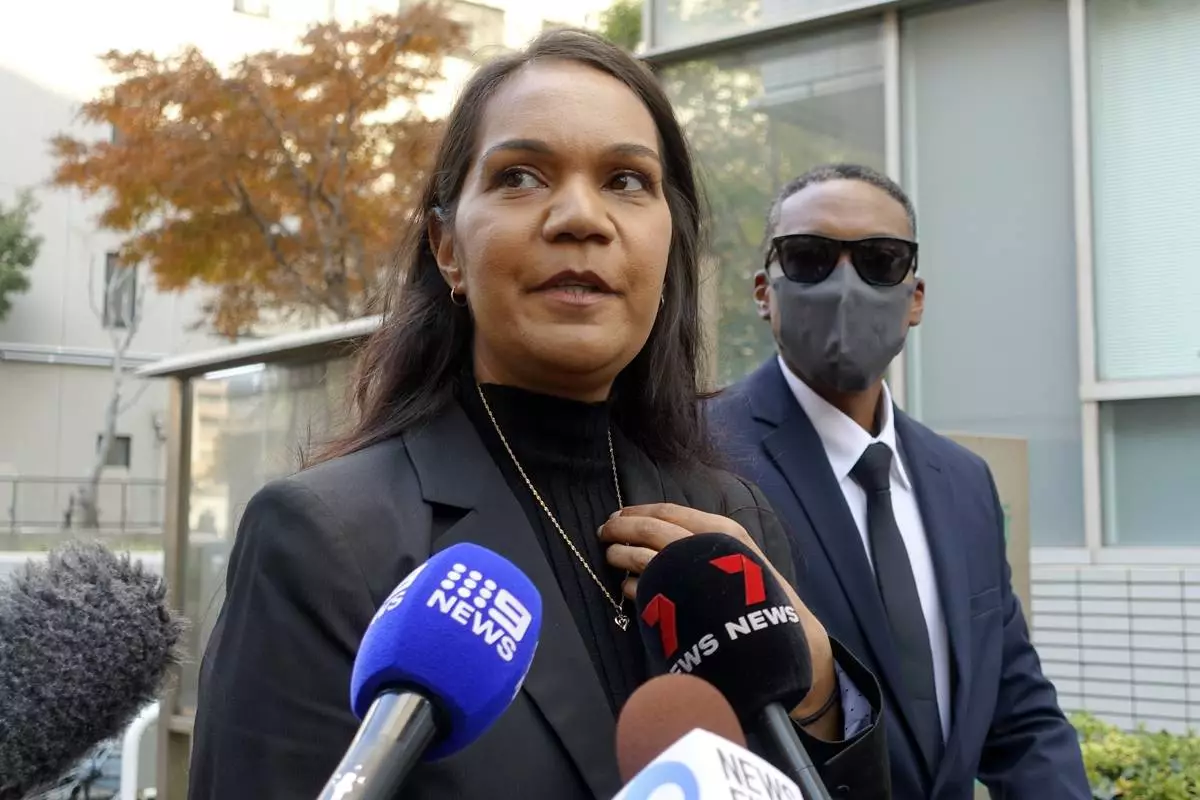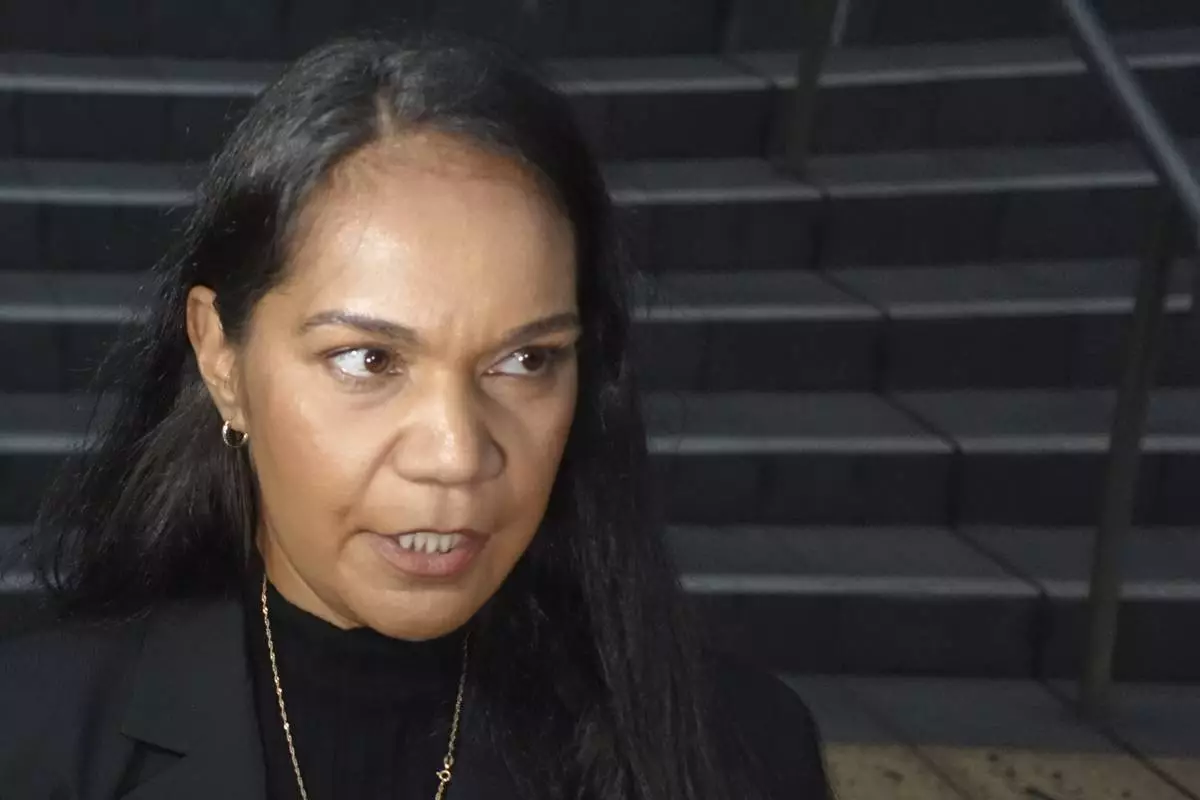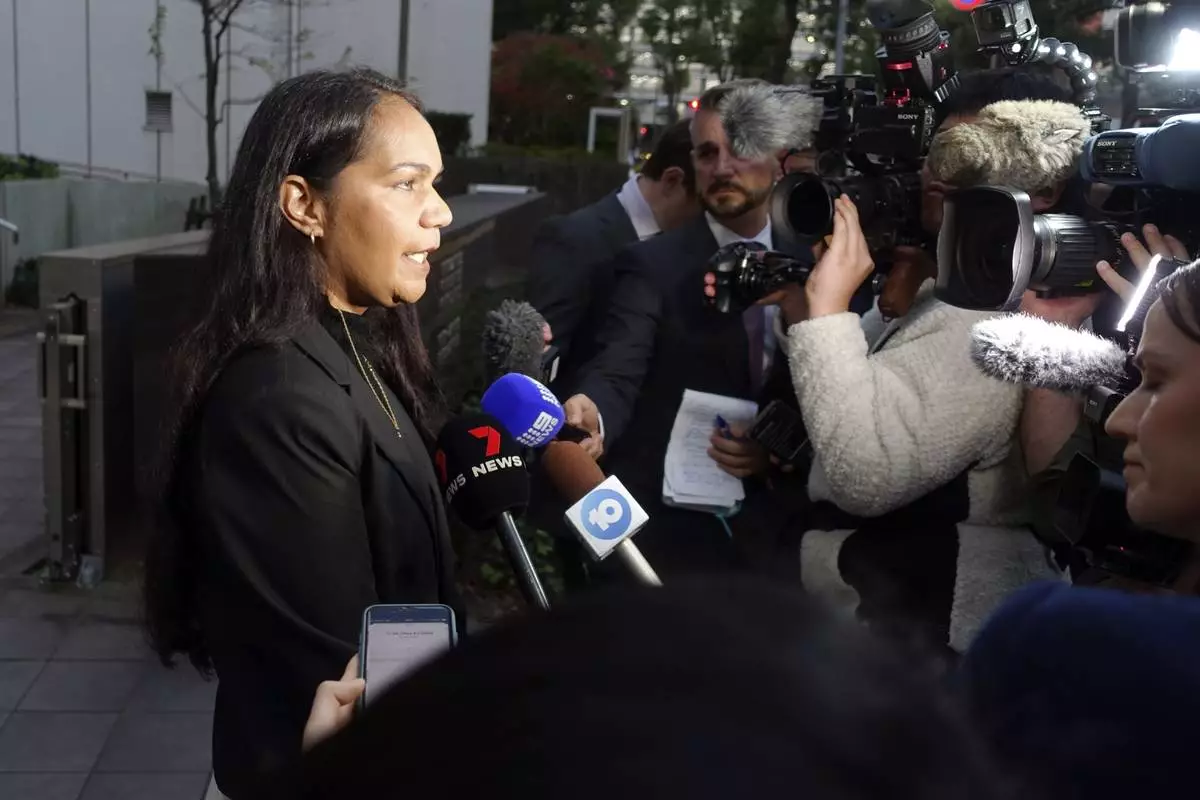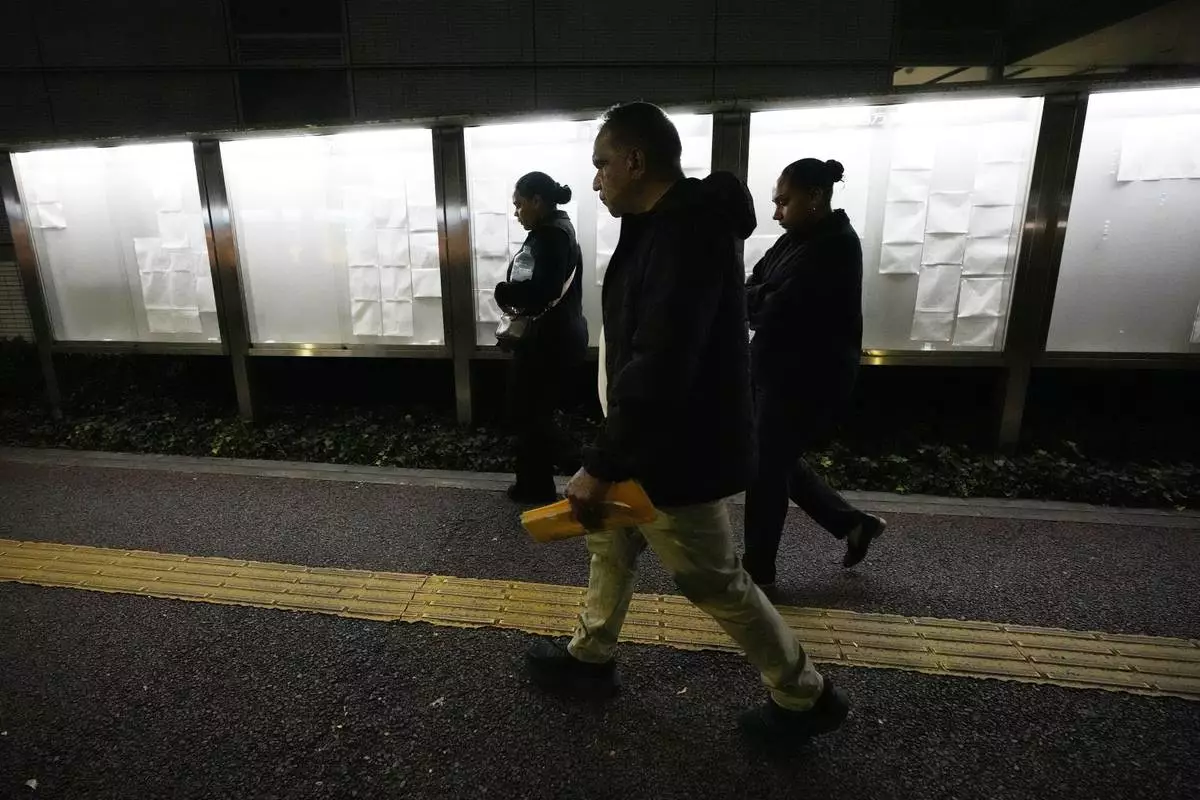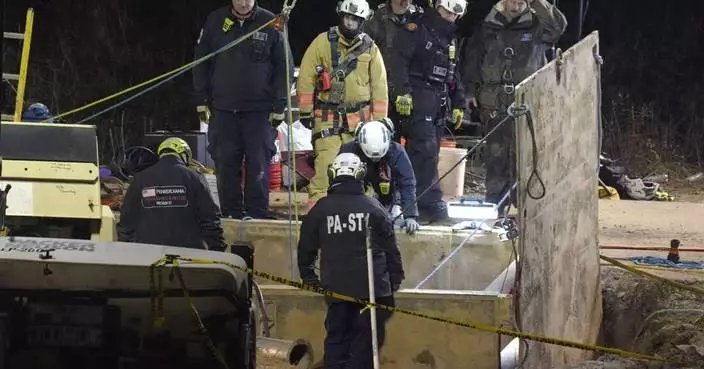ST. PAUL, Minn. (AP) — A transgender athlete should be allowed to compete in the women's division at powerlifting events because she's protected against discrimination by the Minnesota Human Rights Act, her attorneys urged the state Supreme Court on Tuesday.
USA Powerlifting rejected JayCee Cooper's application in 2018 to compete in the women's division of its events on the ground that she enjoys strength advantages over other women. Cooper sued in 2021, and the trial court sided with her.
But the Minnesota Court of Appeals sent the case back to the trial court in March, saying there were “genuine issues of fact” about whether USA Powerlifting excluded Cooper because of her transgender identity and whether the organization had a “legitimate business reason” for rejecting her. Cooper then took the case to the state's highest court.
Cooper's attorney, Christy Hall, said USA Powerlifting's policy discriminates against all transgender women, regardless of their individual physical capabilities, and urged the justices to reverse the Court of Appeals decision.
“It holds that stereotypes about people’s bodies as a group may legitimately be used to discriminate against individuals," Hall said. "For example, you could use the exact same logic to say women can’t be firefighters because firefighters need to be strong and women as a group aren’t as strong as men.”
Ansis Viksnins, an attorney for USA Powerlifting, argued that the law requires courts to answer the question of whether a defendant had a discriminatory motive, not just whether the action was discriminatory. He said the Court of Appeals was right to send the case back to the trial court to determine whether the sports group had a legitimate reason for barring Cooper from competing in its women's division.
“I would suggest there would be a serious, chilling effect on women’s sports” if Cooper's arguments prevail, Viksnins said.
Transgender people’s participation in sports has been a contentious issue across the country and was a hot topic in the fall elections. Republican Donald Trump put his opposition front and center in his presidential campaign. The LGBTQ-rights movement regarded Trump's election as one of its biggest setbacks in its history.
At least 24 states have laws on the books barring transgender women and girls from competing in certain women’s or girls sports competitions. And the U.S. Supreme Court on Wednesday will take up the issue of gender-affirming care for transgender minors, which has been banned by Tennessee and 25 other Republican-led states.
In an indication of the intense interest in the Minnesota case, numerous athletes and organizations on both sides filed friend-of-the-court briefs, including former tennis champion Martina Navratilova, who was part of a group of 83 female athletes backing USA Powerlifting’s position. One of the organizations backing Cooper is the locally based LGBTQ+ rights group Gender Justice.
The Minnesota Human Rights Act contains broad protections against discrimination, including on the basis of sex defined broadly, and was updated last year to specifically include gender identity, when the Legislature also made Minnesota a refuge for young people coming from other states for gender-affirming care.
“We believe in the right to live free from discrimination, and to pursue one's dreams, whether that's excelling in athletics, advancing in a career, or simply living openly as your own authentic self,” state Sen. Erin Maye Quade, who serves as an adviser to Gender Justice, told reporters after the hearing. “Minnesota has long been a leader in advancing justice. And we are proud to be a trans refuge state, providing hope and support amid a national landscape that has grown increasingly hostile to transgender people.”
USA Powerlifting argued in its brief that female transgender powerlifters have a significant advantage in a sport that relies inherently on strength. The group noted that Cooper could compete in an open division it created in 2021 to serve all gender identities.
Viksnins told reporters afterward that performance differences between male and female weightlifters provide a “legitimate, nondiscriminatory reason” to exclude transgender women and girls from competing in the group's women's division, and that the group deserves a chance to make that argument to a jury.
The justices took the case under advisement and did not say when they would rule. Since the legal arguments were based largely on how the courts should interpret Minnesota law, the eventual decision won't set a binding precedent for other states. But courts elsewhere faced with similar issues could choose to draw on the legal reasoning behind it.

The Minnesota State Capitol in St. Paul, Minn. which contains the state Supreme Court chamber, is shown before sunrise on Tuesday, Dec. 3, 2024. (AP Photo/Steve Karnowski)



